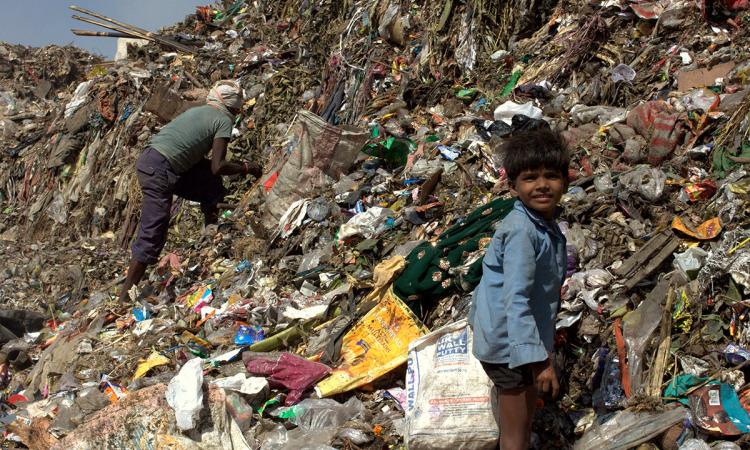
Delhi churns out nearly 10,000 metric tonnes of solid waste every day
The national capital is being increasingly plagued by poor solid waste management ever since the population burgeoned in the 1990s. The city produces close to 10,000 metric tonnes of garbage a day and this figure is expected to rise to almost 18,000 tonnes a day in the next five years. Close to 5,00,000 ragpickers, including children, scavenge the ‘unscientific’ landfills that dot Delhi, exposing themselves to a cocktail of health hazards in the absence of proper protection.
Lack of safety and cleanliness stop women from using Delhi public toilets
An audit of public toilets conducted by NGO ActionAid India has revealed that lack of privacy and security forces many women to keep away from public conveniences in Delhi. Most of the public toilets were found to be unclean and wanting in safety infrastructure. Men were often found to misuse public toilets at night, making the latrines completely out of bounds for women in need.
Housekeeping of sanitation facilities in Chennai corporation schools to be outsourced to private firms
The Greater Chennai Corporation has decided to outsource housekeeping activities in government school toilets to private agencies. These private firms are expected to regularly clean and maintain the toilet blocks in addition to ensuring they are always equipped with electricity and water supply. Sanitary workers are expected to stay the entire day in contrast to the regular practice of just a few hours to ensure the toilets are usable at all times. Other urban local bodies across Tamil Nadu are expected to join Chennai soon and privatise such services.
Low-cost napkins, terracotta incinerators revolutionise women’s hygiene in rural India
A resident of Vadodara, Gujarat, Shyam Sunder Bedekar has been kicking up a silent storm in rural women’s hygiene. The 54-year-old is responsible for producing affordable sanitary napkins ‘Sakhi’ which cost Rs 2.50 per piece and low-cost incinerators called ‘Ashuddhinashak’ which help in safely disposing of menstrual refuse. Many of these terracotta incinerators have been installed in government schools across the state. He has managed to set up 20 low-cost sanitary napkin-producing facilities across Vadodara, fully run by local women.
UP to digitally catalogue all toilets constructed under SBM
The Uttar Pradesh government has decided to digitally catalogue all latrines built under the Swachh Bharat Mission to put a stop to financial irregularities and ensure building quality following reports of rampant fund misuse and shoddy construction. District officials have been directed to maintain detailed information about the beneficiaries and details of toilets constructed across all blocks and villages complete with the beneficiary ID and local government directory (LGD) code of each panchayat.
This is a roundup of important sanitation related news published between November 26 and December 2, 2016.
Lead image courtesy: Al Jazeera